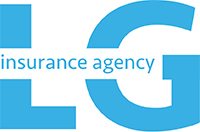The IRS constantly combats criminals who find new and better ways to steal your personal information. However, if you want to keep your personal information safe, you need to do your part too.
Tax Identity Theft Week starts January 28th. It’s a great opportunity to review your safeguards and improve so you don’t become an identity theft victim.
Safeguard Your Social Security Number
Tax authorities use your Social Security number as a unique identifier. If a criminal gets hold of your SSN, they can file a fraudulent tax return long before you normally would, pocket your refund, or use your identity for other illegal purposes.
The IRS reports they rejected or suspended 4.8 million returns and confirmed 1.4 million identity theft returns in 2015 alone with an overall value of $10.9 billion. However, many criminals do succeed and tax identity theft is a real threat. Don’t carry your Social Security card and only provide your SSN when absolutely necessary.
Check your Social Security Administration earnings statement annually for accuracy too. Identity thieves can sell your personally identifiable information and credit standing to legitimize criminals, poor creditors, and illegal immigrants. Their income appears as your earnings when an employer reports it to the IRS. They may also apply for Social Security or Medicare, in your name.
File Early
Since criminals rely on getting a fraudulent return into the IRS before you normally would, you can foil their plans when you file early. Besides that you’ll also avoid the rush and get your refund quicker if you’re expecting one.
Use Strong Passwords
Hackers love lazy people that rely on a weak password or use the same password for all their needs. Create complex passwords and don’t leave them on your phone, in your wallet, or on a post-it note on your computer.
If changing all your passwords often is too much trouble, use a password manager. Once you enter all your current passwords, you’ll use a master password you can change quickly and easily.
Update Security
Hackers look for vulnerabilities and less diligent computer users are often their target. Ensure your firewall, anti-spam, and anti-virus software stays current to avoid known loopholes into your system.
If you use mobile devices, protect them too. Mobile malware is quickly becoming the most-favored access point for criminals.
Safeguard Data
Backup your data in the cloud or on an external hard drive. Dispose of unwanted digital devices safely too. Deleting files doesn’t eliminate all data, so destroy your hard drive, tablet, or cellphone before you recycle.
Store paper files in a locked filing cabinet and don’t leave documents such as bank statements and bills in plain view. Shred all documents with personally identifiable information before disposal.
Clear the mailbox daily or arrange for someone to do it for you if you’ll be away. Consider investing in a mailbox with a lock so you’re the only one that can get mail out.
Don’t Nibble At The Bait
The IRS and your bank do not send emails asking for personal information such as your SSN or password. The IRS does not demand money through email either. This is “phishing” and these emails are the bait criminals use to catch a big financial fish.
Don’t provide financial information over the telephone, internet, or mail unless you initiated contact. Otherwise, contact the company or the IRS directly through their posted telephone number.
Cybercrime is a threat to everyone and the costs to rectify identity theft are often staggering. Consider cyber liability insurance to protect your business from the financial repercussions of identity theft.
It covers malware removal and reprogramming computers and smart devices, cyber extortion assistance, losses due to identity theft, and credit monitoring and restoration.


